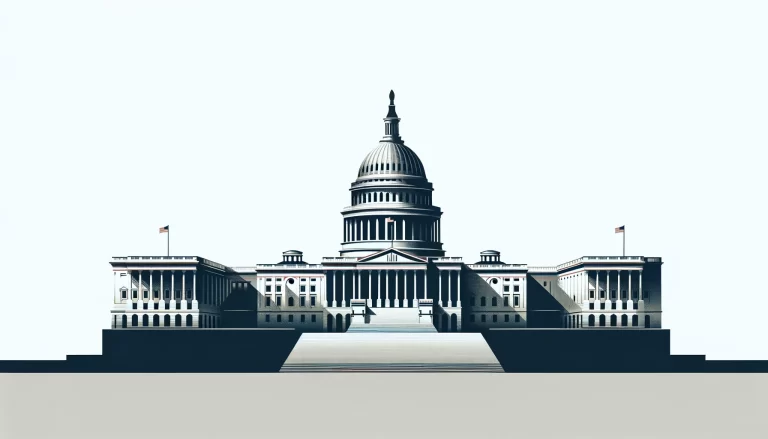SPECIAL REPORT
From Military Intervention To Diplomacy In American Foreign Policy
Focusing on diplomatic solutions and multilateral collaborations over military interventions in its foreign policy will enable the White House to achieve better outcomes.
By | Patric McFarland , FEBRUARY 28, 2024 / 04:12 PM

This ilustration has been created by Foreign Analysis editor team.
In 2008 and 2012, a US Congressman named Ron Paul ran for the Republican Presidential nomination. I was in high school when these campaigns occurred, but I remember them impacting my worldview. At the time, I was living in suburban Kansas City, and mainstream conservatism was the Bush Doctrine, and foreign policy meant intervention. While I wasn’t ideological, I remember Ron Paul’s non interventionism stuck out from the other candidates on the debate stage. If I’m honest, I wouldn’t fully grasp the complexities of non interventionism for a few more years, but the idea of not using our military to harm people across the world still sounds good to me. (Perhaps I listened to Green Day’s American Idiot one too many times.)
There were some issues with Ron Paul’s presidential campaigns, his connection to the John Birch Society, the racial dog whistles of states’ rights, and his vigorous promotion of Austrian economics. However, these were things that could be ignored in an era of CIA Black Sites, watching my fellow suburbanites callously condone torture and an almost sexual obsession with carpet bombing in the name of killing terrorists. (Ironically, this was primarily done by people who also considered themselves pro-life.)
Let’s fast forward to the present, the 2024 Presidential Election, and Donald Trump is blasting that NATO’s time is up; it’s their time to pay. President Biden is continuing to show support for Israel and Ukraine. A reminder to the United States’ allies that as long as he is in the white house, they will have our support. I am torn…
America First foreign policy is not the way to go. First, I don’t think Donald Trump believes anything other than what best suits him. While he did have a few memorable zingers calling out Jeb Bush during the 2016 Republican Presidential Debates, he seems to be stuck in the middle of someone who condones torture but is against war… what? Then you have Tucker Carlson; I will admit I like Tucker. Occasionally, he makes some good points, and he asks the right questions, but like Trump, he seems to go for a reaction rather than coming to a universal conclusion.
Then you have JD Vance, a Senator from Ohio and writer of Hillbilly Elegy. This memoir did a great job of pointing out the socio-economic problems of the midwestern United States. (I am a midwesterner; it’s near to my heart.) Like Carlson, he has been skeptical of involvement in Ukraine, but he continues to draw attention to issues the United States faces domestically. Vance has also addressed a little more empathy for the Ukrainian plight, saying, “While it’s not America’s fight, they will pray for Ukraine in church.” Vance has also stated that Ukraine may have to cede land to stop the Russian invasion.
And then you have Joe Biden, and Chris Christie. I pick these two candidates because they have done a good job of articulating a position that is similar to mine in that America’s role to play in these conflicts is one of mediator, rather than one of police or enforcer. Christie said during the Republican Debates in the fall of 2023, that while he would continue financial support for Ukraine, he would not put American troops on the ground. And I think this is a nice moderate position.
As it is across the world inflation is an issue in the United States, but I do not believe for one second that if someone like Nikki Haley were to get into office she would rein in defense spending. I think the United States, can play a role in these conflicts given but with some restraint. I belive it suits us best to have some stability, and the election of isolationism or extreme interventionism is not the best way to go.
The United States needs to return to what it did toward the beginning of the Cold War, use its diplomatic community to lead by influence rather than our military. Have a triangulation of information between diplomats, intelligence, and the military and come to a conclusion that addresses our needs as a nation first, while also supporting our allies abroad.
I know it sounds idealistic, but we have done it before and I do believe we can return to it again. It is reckless to have our first reaction be to use our military to solve any conflict, and while I do not support President Trump’s ideas of saying that NATO is over. I do think that the United States can use it’s influence to create a stronger alliance, and have all NATO members support the cause in a collaborative effort.